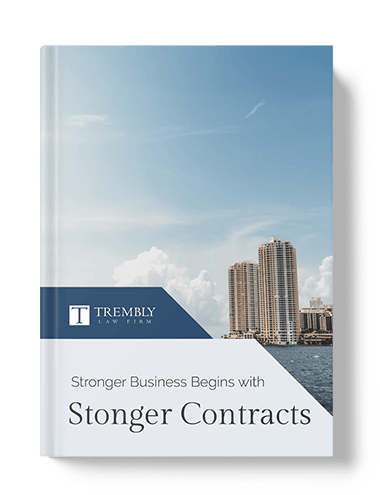In recent blogs, we have tried to convey the fact that contract formation can be quite complex. We’ve tried to communicate this by exploring the nuances of contractual elements (i.e. offer, acceptance, consideration, legality, capacity and writing), as well as other theories which inform contract law. Business owners need to commit at least some amount of energy to learning the basics of contract formation. Doing so can have a severe impact on one’s business career. In this post, we’re going to explore another doctrine which has to do with the enforcement of facially incomplete contracts: promissory estoppel.
The doctrine of promissory estoppel – also referred to as “detrimental reliance” in some sources – has been around for many decades, and has guided the opinions of many cases. Essentially, promissory estoppel provides a means for a contract to be enforced even when the element of consideration is inadequate or lacking. In other words, on the surface, the agreements enforced by promissory estoppel are technically not binding contracts; but, courts have decided that not enforcing these agreements would produce inequitable outcomes. Let’s explore this doctrine in a bit more detail and then examine one prominent case which used this idea.
The Elements of Promissory Estoppel
As mentioned, promissory estoppel comes into play when you have a contract which is superficially incomplete. Consider this hypothetical scenario: a business owner makes a promise to a prospective customer. The terms of the promise aren’t fully ironed out, so there isn’t necessarily an actual “offer,” nor is there an exchange of consideration. But, it would be reasonable for the prospective customer to rely on the promise made by the business owner. The customer does rely on the promise, and then suffers a detriment as a consequence. What should the outcome of such a scenario be? If we were to simply say that the absence of a facially valid contract is controlling, we may end up with an unjust outcome. Promissory estoppel can be used in these situations to produce a better outcome.
There are four elements which must be present before a person can attempt to utilize this doctrine: (1) there must be a promise, (2) relying on such a promise must be reasonable, (3) a person does in fact rely on the promise, and (4) that person suffers a detriment as a direct consequence of this reliance. The presence of these four things can trigger promissory estoppel. If business owners master this doctrine, they may be able to avoid any number of potentially unpleasant situations.
Case Example: Greiner v. Greiner (1930)
Let’s look at a case involving promissory estoppel to get a clearer sense of this idea. One famous case which used this concept was Greiner v. Greiner (1930). In this case, a woman made a promise to her son that she would gift him a large area of land if he relocated and moved onto the land. The son relied on the promise, moved from his current location, and began occupying the land. Subsequently, the woman tried to recover possession of the land from her son. She claimed that, although she did make a promise, the communication between her and her son did not constitute a valid contract. Ultimately, the son prevailed. The court determined that the doctrine of promissory estoppel prevented the woman from taking the land back from her son. The reason for this is because the son relied on the promise to his detriment. The son was able to keep the land, even though the son didn’t exchange any consideration for the land (other than his commitment to relocate).
Contact Trembly Law for More Information
Business owners should be able to see the value of understanding promissory estoppel without too much difficulty. Simply put, this doctrine has the power to convert your promises into enforceable agreements, depending on the circumstances. Understanding this concept can help you further understand the full implications of your communication with employees, prospective clients, and other professionals. If you’d like to learn more about this crucial concept, or if you’d like counsel on a specific contract issue, please get in touch with Trembly Law Firm today. Give us a call at (305) 431-5678 and one of our talented business law attorneys will respond immediately.
Image credit: https://www.creditdebitpro.com/

















